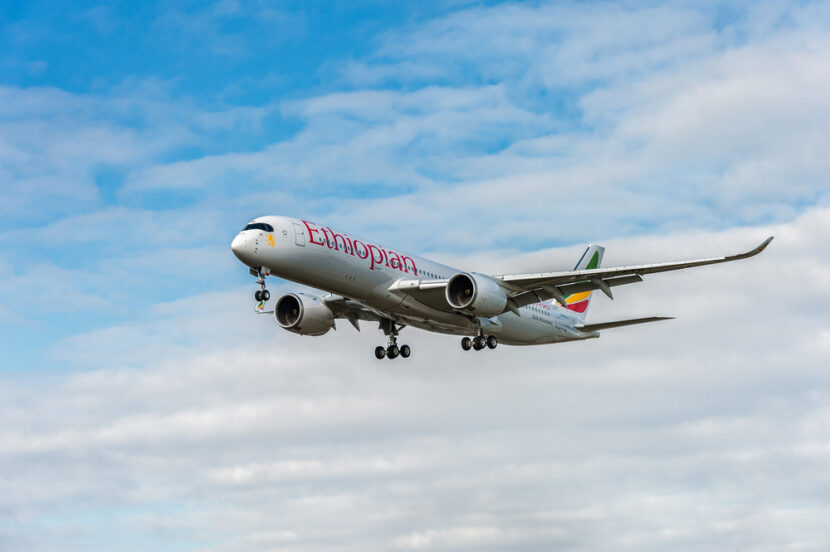BEIJING — Aviation authorities in China, Indonesia and Ethiopia ordered airlines in those countries to ground their Boeing 737 Max 8 planes after one of the aircraft crashed in Ethiopia, killing all 157 people on board.
The crash of the Ethiopian Airlines jet shortly after it took off from Addis Ababa on Sunday is drawing renewed scrutiny of the plane just four months after a similar crash of the same model of aircraft in Indonesia that killed 189 people.
A spokesman for Ethiopian Airlines, Asrat Begashaw, said the carrier had grounded its remaining four 737 Max 8 planes until further notice as an “extra safety precaution.”
The airline had been using five new 737 Max 8s and awaiting delivery of 25 more. Asrat said the search for body parts and debris from the crash was continuing.
China’s Civil Aviation Administration said that it ordered airlines to ground all 737 Max 8 aircraft as of 6 p.m. Monday, in line with the principle of “zero tolerance for security risks.”
It said it would issue further notices after consulting with the U.S. Federal Aviation Administration and Boeing.
China Southern Airlines is one of Boeing’s biggest customers for the aircraft.
Indonesia also grounded 737 Max 8s for inspections.
Director General of Air Transportation Polana B. Pramesti said the grounding was taken to ensure flight safety and ensure the planes are airworthy.
There are currently 11 Max 8 planes operated by airlines in Indonesia including 10 by Lion Air and 1 by the national carrier, Garuda.
Cayman Airways said it was temporarily grounding the two Boeing 737 Max 8 aircraft it operates, as of Monday.
Real time flight radar apps showed dozens of the aircraft still operating around the globe.
Chicago-based Boeing said it did not intend to issue any new guidance to its customers. It plans to send a technical team to the crash site to help Ethiopian and U.S. investigators, however, and issued a statement saying it was “deeply saddened to learn of the passing of the passengers and crew” on the Ethiopian Airlines Max airplane.
Ethiopia’s state-affiliated Fana Broadcasting Corporate reports that the black box has been found from the crashed Ethiopian Airlines plane.
An airline official, however, tells The Associated Press that the box is partially damaged and that “we will see what we can retrieve from it.”
A senior UN official and a New Brunswick forester were among the 18 Canadians who died Sunday. The United Nations High Commission for Refugees said one of its Canadian-born employees, Jessica Hyba, was among the victims of the deadly crash of an Ethiopian Airlines plane.
Meanwhile, forestry groups identified Peter DeMarsh of New Brunswick as one of the victims.
The 737 is the bestselling airliner in history, and the Max, the newest version of it with more fuel-efficient engines, is a central part of Boeing’s strategy to compete with European rival Airbus.
Boeing has delivered about 350 737 Max planes to scores of airlines and has orders for more than 5,000.
Shares in the company fell 9.6% Monday in pre-market trading.
Air Canada said in an email statement Monday that it has operated Boeing 737 Max 8 aircraft since 2017.
“These aircraft have performed excellently from a safety, reliability and customer satisfaction perspective,” said spokeswoman Isabelle Arthur. “We continue to monitor the situation, and based on current information and recommendations by government safety regulators, including Transport Canada, and the manufacturer, we continue to operate our normal B737 schedule.”
Air Canada has 24 Boeing 737-8 Max planes in its fleet and WestJet operates 13.
WestJet also expressed condolences, and said it would not speculate on the cause of the incident at this time. WestJet said it is “working with Boeing to ensure the continued safe operation of our Max fleet.”
Alan Diehl, a former National Transportation Safety Board investigator, said reports of large variations in vertical speed during the Ethiopian jetliner’s ascent were “clearly suggesting a potential controllability problem.”
Other possible causes include engine problems, pilot error, weight load, sabotage or bird strikes, he said.
Ethiopian has a good reputation and the company’s CEO told reporters no problems were spotted before Sunday’s fight. But investigators also will look into the plane’s maintenance, which may have been an issue in the Lion Air crash.
Days after the Indonesian accident, Boeing notified airlines that faulty information from a sensor could cause the plane to automatically point the nose down. The automated system kicks in if sensors indicate that a plane is about to lose lift, or go into an aerodynamic stall. Gaining speed by diving can prevent a stall.
The notice reminded pilots of the procedure for handling such a situation, which is to disable the system causing the automatic nose-down movements.
With files from The Canadian Press
